Revelation Perth International Film Festival 2018
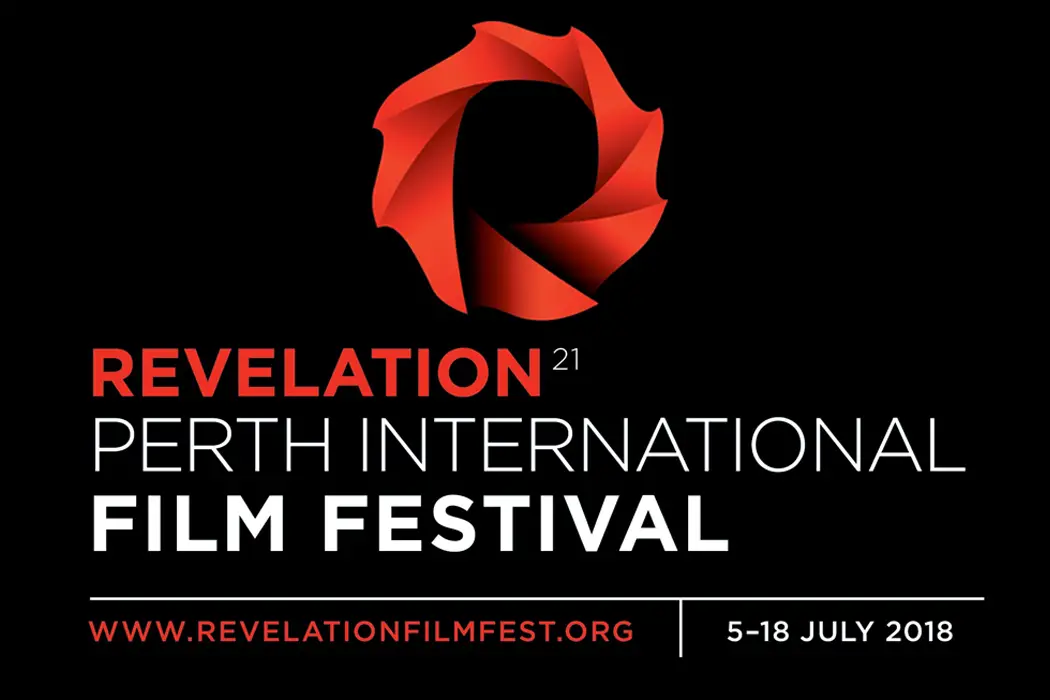
Alex is a 28 year-old West Australian who has a…
Being in Australia means that whenever you hear any critical acclaim for a festival release internationally, there’s always a small part of you that wonders if it’s ever going to hit our shores. Right now, there’s huge doubts if big US independent hits like Eighth Grade, Blindspotting and Sorry To Bother You are ever going to grace Australian cinemas, or end up being dumped on DVD next year. Thank god for film festivals like Revelation Perth International Film Festival (website), two weeks where Perth, Western Australia gets a chance to showcase a wonderfully curated selection of great new features, documentaries and short films from countries worldwide, 200+ screenings from 23 different countries.
This year I had the pleasure of attending quite a few screenings, and whilst I did manage to catch a few festival favourites (The Rider, You Were Never Really Here and Leave No Trace, all terrific releases and some of the year’s best), I’ve chosen to spotlight some of the more obscure titles, from illuminating character portraits to the latest in British genre cinema.
Our New President (Maxim Pozdorovkin)
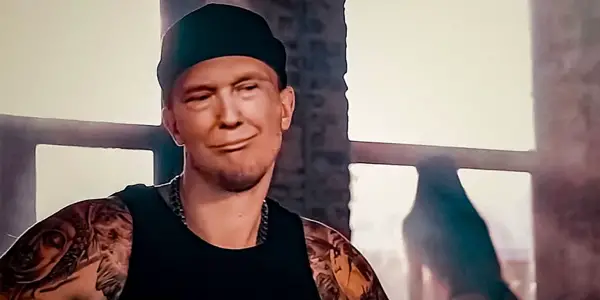
Our New President, Maxim Pozdorovkin’s exposé on the Russian media propaganda that supported Donald Trump’s 2016 election campaign, is a prime example of the importance of editing, and how this crucial aspect of filmmaking helps build a necessary relationship with the viewer, assemble form and allow the filmmaker(s) to communicate their dramatic/thematic points. Our New President demonstrates this by showing us the failure of this function, the cinematic equivalent of “Don’t Do What Donny Don’t Does”, as Pozdorovkin has a killer idea here – retell ‘Donny’ Trump’s 2016 political campaign through the eyes of the Russian government-controlled news programs, an alarming exhibition on the power of propaganda on those who are incapable of knowing better. Unfortunately, what we actually get is basically a YouTube playlist that’s been stitched together through Windows Movie Maker, a disorganised college project that I assume has had a successful festival run due to the universal hatred for the foolish POTUS.
Koyaanisqatsi may not have a conventional plot, but the way Godfrey Reggio arranged his footage, maximising the power of the Kuleshov effect, managed to say something, even if it’s up to us to decide what exactly that is. Our New President forgets about the capabilities of implication, as what begins as an informal study on the evolution of Russian television news programming quickly descends into an amorphous mishmash of news clips and regional YouTube videos, wildly bouncing between them like an erratic game of pinball, hoping that it strikes enough points to mean something. There are a handful of genuinely disturbing moments, such as the malicious attempts by ‘Russia Today’ (their major news provider) to slander Hilary Clinton by saying she suffers from “retardation”, but these bits slowly lose effect when they’re constantly wedged in-between pointless detours into Russian civilians applauding Trump from their living rooms.
It’s ironic that a film damning the use of propaganda is blatantly propaganda itself, as Pozdorovkin lacks the confidence to let the various clips speak for themselves, often using obtrusive techniques like slow-motion and uncomfortable zoom-ins to spell out the eerie nature of his footage. The problem with distorting authenticity for the sake of a political point is that he destroys any sense of a honest reality and instantly vanishes his credibility in doing so. The documentary’s strongest points are when it finds some crazy Russian news reports and allows us to laugh at the absurdity of the situation, but when it leans back on a large library of YouTube personalities (whose carefully curated nature speaks to this film’s paradoxical nature), it all falls apart. YouTube currently has 7 billion videos available to watch right now, so the ability to craft an argument about literally anything by hand-picking a few of them doesn’t exactly say much – If we reward mediocrity like this, then I can’t wait for next year’s festival darling about how the moon doesn’t exist.
Ghost Stories (Andy Nyman, Jeremy Dyson)
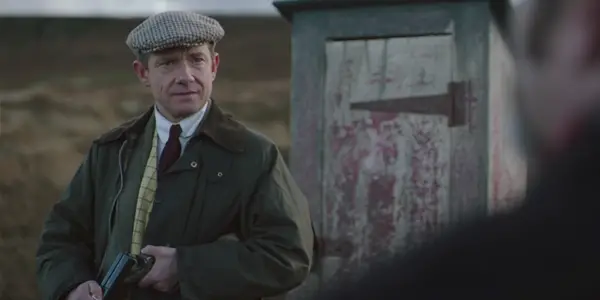
“The brain sees what it wants to see” warns Andy Nyman’s psychic debunker in Ghost Stories, Nyman and Jeremy Dyson’s horror anthology about the types of tales that should be exchanged around a campfire, told in whispers with a flashlight under your face. Adapted from their smash-hit 2010 stage play of the same name, Nyman and Dyson’s outstandingly confident directorial debut is a true callback to the old-school portmanteau’s of their youth, the days when Amicus Productions and Ealing Studios were regularly rolling out horror-themed anthology pictures. Those cinematic omnibuses usually focused on bite-sized stories that mirrored the trashy dime novels that were popular at the time, a reflection made literal with George A Romero’s Creepshow. Much like Romero’s hugely influential horror compendium, Ghost Stories succeeds thanks to having his trio of supernatural anecdotes handled by the same dual directors, as opposed to the the V/H/S and ABCs of Death style of piecemealing each section off to different directors, a method which usually results in wildly uneven outcomes.
Reprising the role that he originated on stage, Nyman plays Professor Philip Goodman, a spiritual skeptic who hosts a popular television show that exposes John Edward types, alleged psychics who profess the ability to talk to ghosts. Goodman’s show is modelled after the work of famed paranormal investigator Charles Cameron, a personal hero who mysteriously disappeared one day, an ironic twist considering his profession. When Cameron suddenly resurfaces, he recruits his biggest fan to investigate 3 different cases, ghostly reports that cannot simply be dismissed by hidden microphones or novelty toys.
Beautifully shot by Ole Bratt Birkeland (who also shot Revelations Film Festival favourite American Animals), the three chapters are all essentially variations on the same single-setting story, a byproduct of its theatrical origins. Each one traps a man in one isolated location at night, pitting them against an eerie spectre, whether it be Paul Whitehouse’s nightwatchman stuck in a abandoned asylum, Alex Lawther’s doomed car-ride through a misty forest, or Martin Freeman’s uptight businessman’s confrontation with a poltergeist who taunts him about the birth of his upcoming child. The payoff to these scary fables, an experimental denouement that tries to tie all the stories into one definitive interpretation, is quite unsatisfactory, as its ultimate “answer” is just too avant-garde, especially when compared to the sophisticated tone of the trilogy that came before it.
Nyman and Dyson tell these stories with a gossamer lightness of touch that makes the film a real crowd-pleaser, notably when viewed with an actual packed crowd. Watching it alone may form a different reaction, though, as its measured pace may seem leisurely when compared to today’s horror movie rhythms established by the Blumhouse crew. The rising dread in each segment might be too slow and classical for those not willing to fully embrace the focus on building a psychological atmosphere, as opposed to shouting “Boo!” at every 10 minute interval.
Although it never quite transcends its dramatic source, Ghost Stories is an entertaining rebuff to those who insist that every new horror entry must be a gory monster movie, a stylish tribute to a period where terror could be generated from a flap of curtain, letting the audience decide if they are seeing a ghost or just some fluttering cloth.
An Evening With Beverly Luff Linn (Jim Hosking)
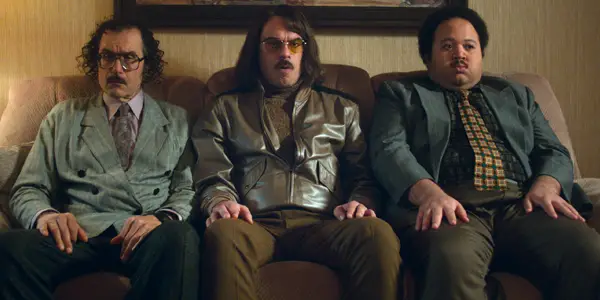
There’s a certain challenge for a director when they emerge with something as peculiar as The Greasy Strangler, because they’re faced with the decision to either double down on the distinctive details that made their first film a hit (Richard Kelly’s transition from Donnie Darko to Southland Tales being a prime example of this) or smoothing out their singular styles into more functional Hollywood formulas, a common practice for indie directors who make the leap from micro-budget hit to summer blockbuster (Hello, Gareth Edwards’ Godzilla!). Jim Hosking, the British director behind the 2016 cult sensation The Greasy Strangler, has gone for the mainstream method, taking the vulgar nature of his popular debut and swapping out the obscene with sincerity for An Evening With Beverly Luff Linn, a quirky but accessible comedy that feels more like one of Jared Hess’ awful post-Napoleon Dynamite attempts at reclaiming former glory – and not just because of the casting of Jemaine Clement.
Beverly Luff Linn begins with a pretty perfect screwball comedy setup: Lulu Danger (Aubrey Plaza, whose character’s name should tell you everything about the film’s tone) lives a pretty unsatisfactory life, especially after her husband Shane (a game Emile Hirsch) is forced to fire her from the restaurant that they both work at. As their marriage falters, Shane tries to save things by stealing Lulu’s brother’s money stash, a theft which causes aspiring enforcer Colin (a very animated Jemaine Clement) to intervene. With everything going to hell in a handbasket, Lulu escapes with Colin, forcing him to take her to a hotel where her ex-boyfriend Beverly Luff Linn (Craig Robinson) will be performing for “one magical night only”. Once they arrive, the hotel becomes a site for a tangled web of intersecting romances, all which seem to be culminate in Luff Linn’s highly anticipated one night event.
The first act starts off pretty funny, another comedy that owes its existence to Tom Green’s Freddy Got Fingered, as it forces the audience to laugh by stretching out and repeating every punchline/ gag till it gets uncomfortable – Craig Robinson’s Beverly Luff Linn only speaks in elongated grunts, something which initially gets a chuckle, but by the hour mark, becomes enraging. One would assume that the general point of the film is to irritate, as Greasy Strangler was practically built to frustrate mainstream audiences, but the film’s disappointing second half suggests otherwise, as Hosking attempts to actually make you care about these characters.
Aided by Andrew Hung’s terrific John Carpenter-like synth score (it’s easily the best part of the entire film), the crisscrossing romances start to get treated seriously, but in doing so, the absurdity fades, which was the only real element keeping Luff Linn interesting. Even the reveal of the Beverly Luff Linn’s mysterious one night event is a crushing disappointment, a one-note joke that lands like a book dropping in a silent library. Despite everything that goes down in the hotel, I really wanted the whole affair to be weirder – next time Hosking needs to double down. Even if it’s unbearable, at least it’ll be memorable, because like its title character, Beverly Luff Linn only stays with you for just one evening.
Matangi/Maya/M.I.A. (Stephen Loveridge)
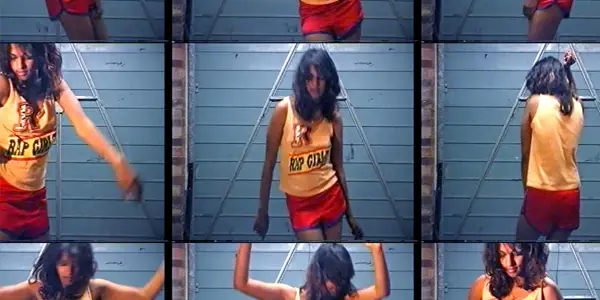
In a sea of documentaries about inspirational talents hitting theatres this year, it’s nice to see one that doesn’t just rely on hagiographic praise from a parade of talking heads; instead director Steve Loveridge allows British-Sri Lankan singer-songwriter M.I.A. to tell her story in her own way in Matangi/Maya/M.I.A. It’s appropriate that M.I.A, the stage name for Mathangi “Maya” Arulpragasam, gets to take control of her own biography, because as we see through the 700 hours of accumulated footage that her and childhood friend Loveridge have exhaustively compiled (stitched together through some loose voiceover work), Maya has had a long history of having her provocative comments be misconstrued, whether it’s the damning 2010 New York Times profile about her, a condescending interview with Bill Maher (is there any other kind though?) or even a middle finger gesture during her 2012 Super Bowl performance (one that nearly cost her a $16M dollar fine).
Kicking off from her childhood, where she met Loveridge at film school, the beginning highlights her original intentions to become a film director and how the late arrival of her father, a member of the Eelam Revolutionary Organisation of Students, both fuelled the inception of her politically-charged art. Those interested in learning about her development from London-bred refugee to one of the defining hip hop artists of the early 2000’s, might be slightly disappointed at the film’s lack of interest in her musical career. Paper Planes, one of the biggest hip-hop tracks of the decade and a staple song for movie trailers, is given about 30 seconds worth of discussion, which seems strange considering how instrumental it was to M.I.A.’s continued legacy within the music industry.
As the technology to record evolves (from VHS camcorders to early phone cameras and eventually to high definition digital), so does M.I.A.’s career, whose experiences as a roadie with Elastica (as she was best friends with the lead singer Justine Frischmann) caused her to begin writing music. Infusing her cultural history with her youthful love for old school rap, she debuted with the chart topper “Galang”, giving her the stage to have her art address political issues, something that her and Frischmann argue about in one of the film’s many candid sequences. In a post-9/11 America that was quick to damn The Dixie Chicks over some off-hand comments, the film highlights how the media were not willing to accept a POC artist who didn’t simply smile and wave, or like M.I.A. herself says, “not an Aziz Ansari type of brown person”.
Loveridge’s portrait never tries to camouflage its intentions as a course-corrector, off-setting her journey through the music industry (a course that’s definitely faded) by focusing on her persistent political activism and trying to piece together why she’s perceived as a challenging musical provocateur. The documentary’s non-linear structure, which bounces between M.I.A.’s rising success and the 2001 trip to Sri Lanka that ignited her interests in political activism, feels unfocused at times, but admiration is due to the film’s many editors, who managed to condense 30 years worth of home videos into something this competent. In a time where entertainers have become incredibly outspoken about current political issues, Matangi/Maya/M.I.A. is a heartfelt celebration of an artist who was publicly convicted for doing something that so many people have the freedom to do today.
Five Fingers for Marseilles (Michael Matthews)
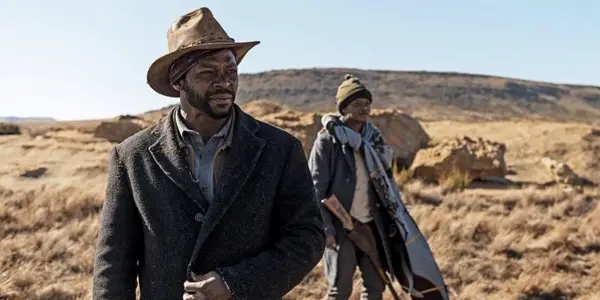
Back in 2015, Steven Spielberg predicted that this current era of superhero films is a limited one, noting that they’re going to “go the way of the Western”. What’s interesting is that since that statement, not only has the superhero monopoly grown bigger, but Westerns have had a subtle comeback, a genre whose traditional values and nostalgic significance have been adapted for a mixture of interesting new releases. Just this year we’ve seen the neglected genre rejuvenated through titles such as Western, The Rider, Sweet Country, and now Michael Matthew’s striking debut Five Fingers for Marseilles, a slow-burning tale of tragedy which renovates the American iconography of gun-slinging cowboys and desert landscapes into a struggling post-Apartheid South Africa.
Within the heart of Marseilles, a small Eastern Cape town in South Africa, lies Railway, an offbeat shanty town named due to its sole existence as a haven for those who worked on the newly-built train railroad. During the time of apartheid, its civilians suffer under the thumb of oppressive white officers, dictatorial agents who are the targets of the titular Five Fingers for Marseilles, a band of rebellious kids who understand that the only way to obtain a better future is to fight for it – if only they could understand when to pick their battles. The crew is made up of 6 kids, with the 6th outlying member being the sole female, Lerato, a love interest for both Zulu and Tau, the two disputing leaders of the slingshot-toting team. Whilst Zulu believes in the patient idea of “striking when the moment’s right”, Tau goes for the opposite, throwing the remote community into chaos when a simple act of intervention ends with Tau killing 2 white adult officers, which causes him to flee town, leaving behind his five damaged friends to take the toll for his fatal actions.
15 years later, Tau (Vuyo Dabula), now an elusive gangster known as “The Lion of Marseilles”, has finished a stint in jail after a failed bus robbery, one which resulted in another occasion of accidental homicide. Returning to his hometown hoping for a chance at redemption, the haunted bandit finds that whilst his old neighbourhood might look a bit older, its problems are still the same. With Apartheid gone, it’s now ‘The Night Callers’, a group of masked gangsters lead by the prophesying “Ghost” (Hamilton Dhlamini), have imprisoned the town under the guise of “prosperity”. The Ghost, who speaks with the gravelly cadence of Jabba the Hutt, is not alone, with his aggressive tactics being assisted by the cowardly Mayor Bongani (Kenneth Nkosi), a former member of the Fingers. Teaming up with Zulu’s forgotten son Sizwe (Lizwi Vilakazi), Tau decides to finally fight back, a crusade which forces him to confront the aftermath of his youthful calamities.
It’s a self-consciously classical tale, one written by Sean Drummond and Michael Matthews this time, a “silent stranger rolls into town” scenario that John Wayne or Randolph Scott would’ve relished in the 50’s, but what sets Five Fingers apart is its characters, a diverse ensemble of talented Sesotho-speaking actors who really bring their colourful and distinctive personalities to life. Whether it’s the drunken British salesman Honest John (Dean Fourie, who feels plucked right out of an Alex Cox film) or The Ghost, who emerges as one of 2018’s greatest on-screen villains, a genuinely badass antagonist, a label that’s cemented when he tells Tau “My mother was struck by lightning when I was born and I had to claw my way out of her charred corpse” – that’s a greater origin story than anything Marvel has come up with.
Shaun Harley Lee’s widescreen compositions are magnificent, as the film is peppered with arresting landscape shots that echo Roger Deakin’s iconic work in The Assassination of Jesse James by the Coward Robert Ford. The desolate setting is practically its own character, a western wasteland that houses a series of struggles – good vs. evil, revenge vs. redemption and cowboys against bandits, with the final round of that eternal fight being the film’s only major flaw. The concluding showdown, the anticipated Peckinpah-inspired stand-off that’s been escalating over the film’s lengthy 2 hour runtime, is unfortunately an anticlimactic misfire. Major characters completely disappear, the intense promise about Tau “unleashing the beast” go unfulfilled and even the orchestration of the chaotic gunplay falls flat, a string of disappointing decisions that caps all of the preceding excellence with a real indifferent shrug. Despite this, Five Fingers for Marseilles is a powerful and poetic debut from an exciting new cinematic voice, a captivating achievement that should hopefully open the gateway for other South African filmmakers to make their mark.
What are some upcoming festival films that you’re looking forward to?
Does content like this matter to you?
Become a Member and support film journalism. Unlock access to all of Film Inquiry`s great articles. Join a community of like-minded readers who are passionate about cinema - get access to our private members Network, give back to independent filmmakers, and more.













